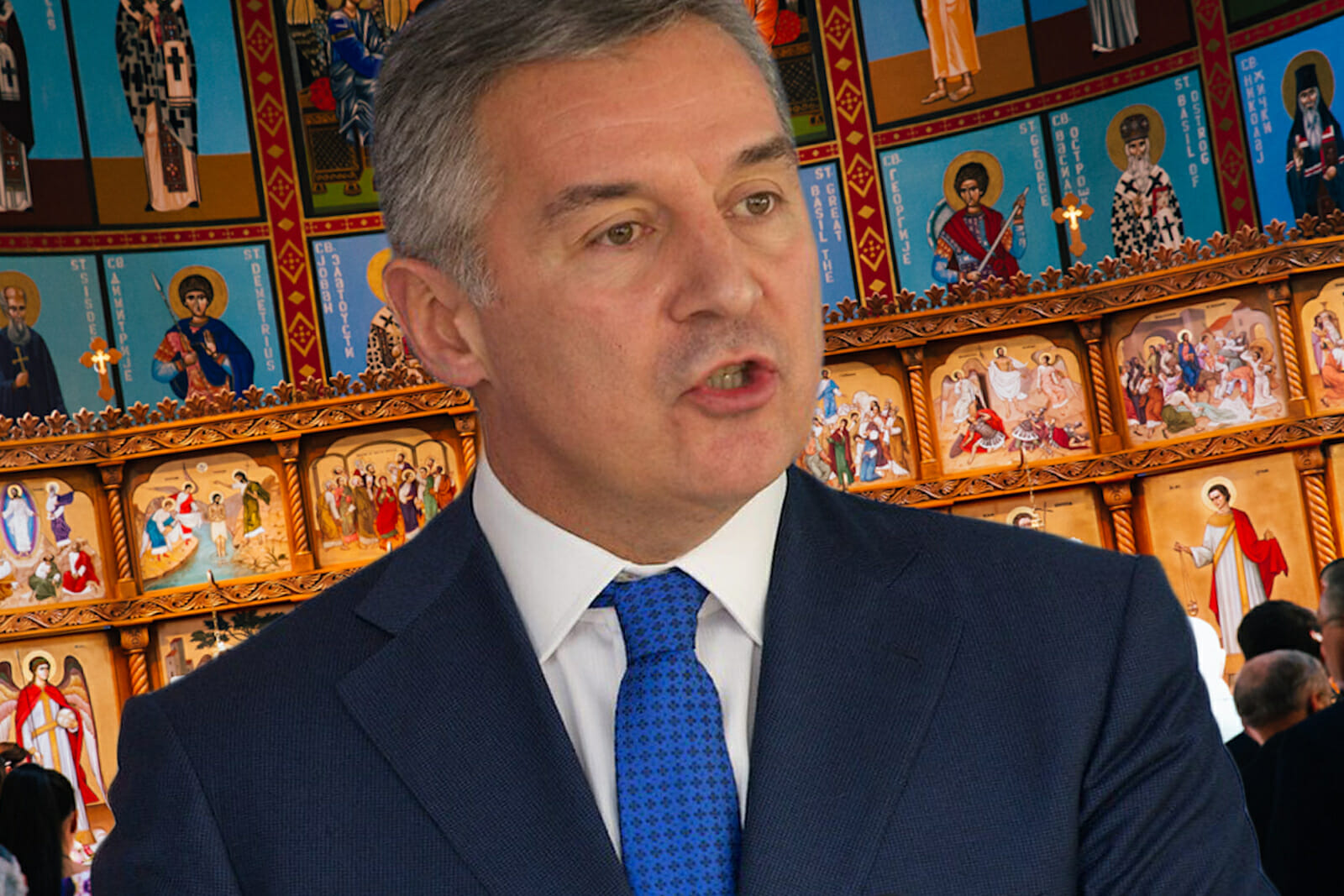
Why is Montenegro Fighting the Serbian Orthodox Church?
Largely unnoticed in the wake of the global coronavirus outbreak and the Turkey-Greece refugee crisis, another drama is unfolding in the EU backyard.
Since the beginning of the year, tens of thousands of Montenegrins have been rallying across the tiny Adriatic country to protest against a new “religion law” signed by the country’s long time ruler Milo Djukanovic on December 29.
The massive protests – of a scale barely seen in the past – have shaken all major Montenegro’s cities, including the capital Podgorica, along with Bar, Budva, Niksic, Cetinje and many others, and several times have become violent with police firing tear gas.
The new controversial religion law gives the government authority over properties that religious organizations in the country have been using for at least a century and, in particular, take control of hundreds of properties used by the Serbian Orthodox Church. More than 70% of Montenegrins declare themselves Orthodox and over two-thirds of them follow the Serbian Orthodox Church.
So, what could be Djukanovic’s motives to apparently pit himself against over half of the country’s population?
The answer becomes clearer if you look at his profile.
He is the longest-serving leader in Europe, in power longer than Vladimir Putin in Russia, Alexander Lukashenko in Belarus and Recep Tayyip Erdoğan in Turkey.
He has managed to stay in power so long by constantly “reinventing” himself and changing with the times. In the 1990s, he was a protégé of Yugoslavia’s leader Slobodan Milošević. In the early 2000s, he led the separation from Serbia and, after gaining independence for Montenegro in 2006, the country became a close ally of Russia and got billions of dollars of Russian investments as well as millions of Russian tourists who contributed to more than half of the state budget revenues. But relations with Russia cooled down since Podgorica joined Western sanctions against Moscow in 2014 and then joined NATO in 2017. Now its leader is trying to be portrayed as a pro-Western democrat who leads the country to join the EU.
Djukanovic has reportedly used various means to stay in power. These tactics have, it is claimed, run the gamut from allegations of voter fraud, blackmail, demobilizing potential opposition voters, threatening police violence, and, it is claimed, outright vote-buying. At least three times on the eve of elections there were so-called “attacks on the state” or “coup attempts” that, some have claimed, were staged by Djukanovic to keep power. Anti-corruption watchdogs believe up to 15 percent of the votes in the October 2016 elections, when his party failed to get the majority in the Parliament, may have been fraudulent.
Italy’s anti-mafia unit is also said to have implicated the leader in an alleged cigarette-smuggling ring with evidence presented in courts in Italy and Switzerland including transcripts from wiretapped conversations. Djukanovic was not charged.
Djukanovic, it has to be stressed, has robustly refuted any wrongdoing.
Even so, attacks on independent media and critical voices have become common in the country. In 2004, the editor of the opposition newspaper Dan was assassinated. In August 2013, investigative journalist Tufik Softic was the target of a bombing attack. In December 2013, an explosive device was detonated outside the offices of Vijesti, an independent daily in Podgorica. In October 2015, Jovo Martinovic, a journalist covering Montenegro’s organized crime scene, was jailed for fifteen months on trumped-up drug-smuggling charges. In May 2018, Olivera Lakić, a journalist reporting on corruption, was shot outside her apartment in Podgorica.
Again, Djukanovic denies doing anything wrong but, according to a Global Initiative Report, Montenegrin ports Bar, Budva, and Kotor in recent years have become a hub for cocaine trafficking from Latin America to Europe with a bloody vendetta between Montenegrin drug-smuggling gangs spilling over the country’s border to European capitals.
Campaigners say it is clear that if Djukanovic loses power he will have to “face justice” in Montenegro and beyond – “and he will do everything to avoid it.” He certainly doesn’t want to follow the fate of the former leader of neighboring Croatia, Ivo Sanader, who was sentenced for six years in prison for corruption.
The only institution left in Montenegro thought capable of posing a serious threat to his rule is probably the Serbian Orthodox Church with public opinion polls showing that in Montenegro it enjoys by far more trust than the country’s president, government, parliament or judiciary.
Djukanovic’s plan was believed to be to turn over church properties with no economic value to an uncanonical organization under his control and politically weaken the Serbian Orthodox Church in Montenegro. It appears not to have worked and he did not expect such massive protests.
One critic said, “Now he will resort to desperate measures to stay in power. This will, in turn, provoke an ever-greater confrontation in Montenegro.”

